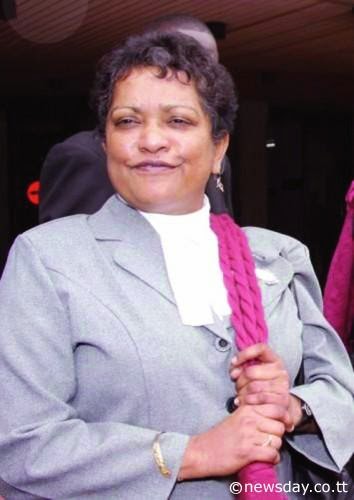Votes and Influence For Sale
The Caribbean Is One Nation.
Votes and Influence For Sale
 It is now blatantly obvious that electing governments in the Caribbean
is becoming more about money than ideas. Vote buying and selling seem to be at
a very high and disgusting level and with rising unemployment along with
widespread cynicism among Caribbean youth, this negative trend and brazen threat
to our democracies seem unstoppable.
It is now blatantly obvious that electing governments in the Caribbean
is becoming more about money than ideas. Vote buying and selling seem to be at
a very high and disgusting level and with rising unemployment along with
widespread cynicism among Caribbean youth, this negative trend and brazen threat
to our democracies seem unstoppable.
Votes and Influence For Sale
 It is now blatantly obvious that electing governments in the Caribbean
is becoming more about money than ideas. Vote buying and selling seem to be at
a very high and disgusting level and with rising unemployment along with
widespread cynicism among Caribbean youth, this negative trend and brazen threat
to our democracies seem unstoppable.
It is now blatantly obvious that electing governments in the Caribbean
is becoming more about money than ideas. Vote buying and selling seem to be at
a very high and disgusting level and with rising unemployment along with
widespread cynicism among Caribbean youth, this negative trend and brazen threat
to our democracies seem unstoppable.
Voter turnout at elections, usually held every five or so
years, is seldom above sixty percent, which means that a considerable number of
those eligible to vote, are simply not making the effort to “mark the X”
thereby voluntarily excluding themselves from an essential part of the
democratic process.
Occasionally, concerned citizens throughout the region, call
for a more participatory form of democracy, which will give all citizens more
say in how their countries are managed. Such callings usually rise and fall,
according to the political and social climate at the time. However, they are
seldom taken seriously by the broader society. This leads to understandable
frustration among progressive thinkers and guarantees the continued existence
of the floundering political managerial class.
Most of the political parties that have ensured the entrenchment
of the political managerial class, have successfully transformed themselves
into monolithic institutions and they
prop up and defend the existing status quo at all costs. They are assured of
the support of a solid block of die hard supporters and are therefore gleefully
aware, that they will form the government at some time.
Electorates in the Caribbean usually reward winning parties,
with two consecutive terms but are known to historically reject them, or as we
say, vote them out after three. It means that parties will be in office for
fifteen years or three election cycles, at the most. So most parties in opposition simply bide
their time, in full knowledge that they will be in office at some time, regardless
of the performance of the government. It is a form of musical chairs that
attracts those who see political involvement as social climbing and improvement in financial
status, and not as any philosophical or ideological exercise.
In the meantime, many voters decide that since



Comments